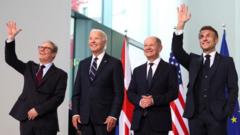The Minister for Energy and Green Transition, John Jinapor, has defended the newly approved GH¢1.00 petroleum levy, stating that this is the right time to impose it, as it is a prudent fiscal intervention necessary to stabilise the country’s energy sector.
Speaking in an interview on Joy FM’s SMS on Wednesday, June 4, Mr Jinapor explained that the government refrained from introducing the levy when it assumed office due to the high cost of petroleum products at the time.
According to him, at the time, fuel prices were hovering around GH¢16.00 per litre, a level deemed too burdensome for consumers to absorb additional charges.
However, he noted that recent interventions by the government have led to a reduction in fuel prices to approximately GH¢13.00 per litre, creating what he said was a reasonable window to introduce the levy.
“Fuel was around GH¢16.00, and a sensitive government will not slap a tax when fuel is GH¢16.00. You couldn’t have imposed that tax around that time when fuel was still very high, and so you needed to work to bring fuel down to this level and share the gain with Ghanaians. At that time, if we had increased it, you can imagine the impact on Ghanaians, but today, the net effect is that you are still having a reduction of GH¢3.00 on a litre of fuel,” he explained.
“It is better to do it today than to (have done) it yesterday, when it would have eroded your income; today, your purchasing power has increased because of the reduction of the value of the dollar,” he added.
Parliament approved the levy on Tuesday, June 3, sparking widespread public criticism, especially by opposition New Patriotic Party (NPP) Members of Parliament.
Despite the backlash from the opposition, the minister maintained that the revenue accrued from the levy would be channelled into critical infrastructural and operational needs within the energy sector, ensuring consistent supply and long-term sustainability.
Mr Jinapor reiterated the government’s commitment to transparency and accountability in the utilisation of the funds, calling on Ghanaians to view the measure as an investment in national development.
DISCLAIMER: The Views, Comments, Opinions, Contributions and Statements made by Readers and Contributors on this platform do not necessarily represent the views or policy of Multimedia Group Limited.
DISCLAIMER: The Views, Comments, Opinions, Contributions and Statements made by Readers and Contributors on this platform do not necessarily represent the views or policy of Multimedia Group Limited.






